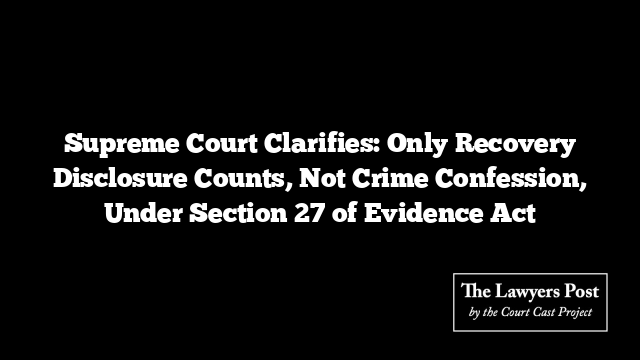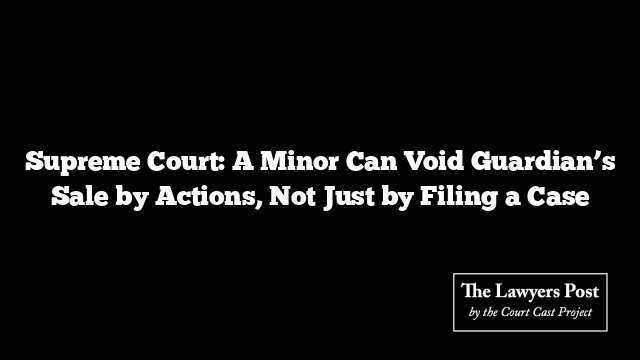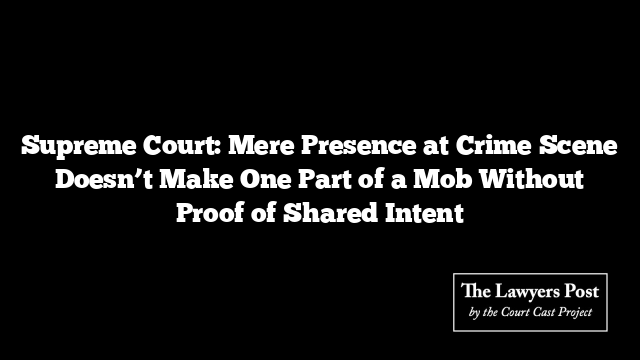In a ruling that reaffirms the narrow scope of admissibility under Section 27 of the Indian Evidence Act, the Supreme Court has acquitted three men convicted of murder, holding that only the part of a disclosure leading to the recovery of an object is admissible—not the portion where the accused admits its use in the crime.
A Bench of Justices Pankaj Mithal and Prasanna B. Varale underscored that any self-incriminating statement beyond the recovery itself falls foul of Sections 25 and 26 of the Act, which render confessions made to police officers inadmissible.
Rejecting the State’s argument that the accused had confessed by leading police to the weapons allegedly used in the murder, the Court observed:
“Only that part of the statement which leads the police to the recovery of the weapons is admissible, and not the part which alleges that the weapons recovered were actually the weapons of crime.”
The bench clarified that the law permits proof only of the specific information that leads directly to the discovery of a fact—nothing more. Justice Mithal, who authored the verdict, reaffirmed the long-standing position from Pulukuri Kottaya v. King Emperor (1947) and its recent reiteration in Manjunath v. State of Karnataka (2023).
The judges stressed that a disclosure statement cannot be stretched to mean a confession.
“The information leading to the recovery of the weapons of crime is admissible, but not the information that the crime was actually committed by the said weapons,” the Court said.
Adding to the prosecution’s difficulties, the Court found that no forensic evidence linked the recovered weapons to the murder. Despite being sent for forensic testing, no report was placed on record to show that the blood on the weapons matched that of the victim.
“The weapons were indeed recovered on the pointing out of the appellants, but without forensic confirmation, recovery only establishes possession—not use,” the judgment noted.
The Supreme Court concluded that the High Court had “manifestly erred” in overturning the trial court’s acquittal. With doubts surrounding both the evidence and the alleged confession, the conviction could not stand.
Accordingly, the apex court allowed the appeals, restoring the acquittal and granting the appellants the benefit of doubt in Rajendra Singh & Ors. v. State of Uttaranchal.





